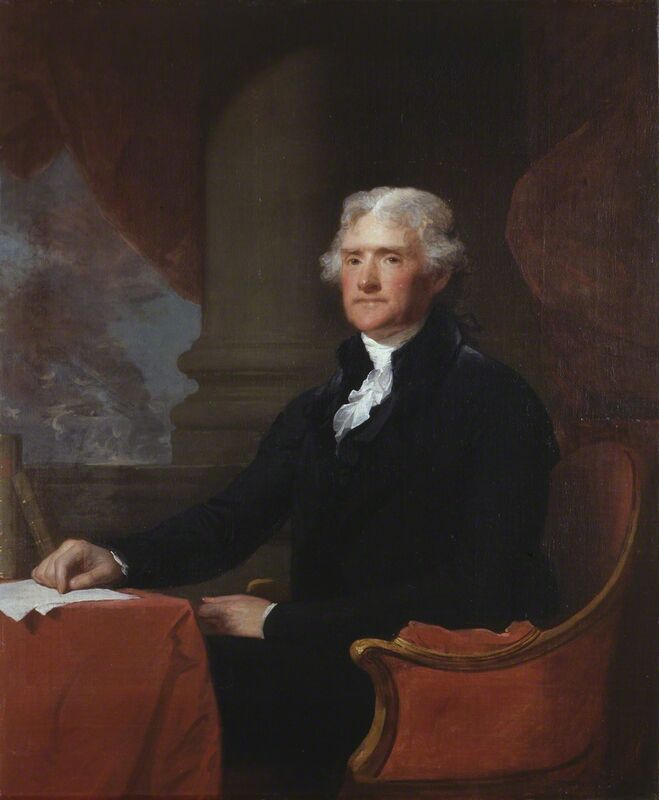Stuart, Portrait of Thomas Jefferson, 1805
The general objects of this law are to provide an education adapted to the years, to the capacity, and the condition of every one, and directed to their freedom and happiness. Specific details were not proper for the law. These must be the business of the visitors entrusted with its execution. The first stage of this education being the schools of the hundreds, wherein the great mass of the people will receive their instruction, the principal foundations of future order will be laid here. Instead therefore of putting the Bible and Testament into the hands of the children, at an age when their judgments are not sufficiently matured for religious enquiries, their memories may here be stored with the most useful facts from Grecian, Roman, European and American history. The first elements of morality too may be instilled into their minds; such as, when further developed as their judgments advance in strength, may teach them how to work out their own greatest happiness, by shewing them that it does not depend on the condition of life in which chance has placed them, but is always the result of a good conscience, good health, occupation, and freedom in all just pursuits.--Those whom either the wealth of their parents or the adoption of the state shall destine to higher degrees of learning, will go on to the grammar schools, which constitute the next stage, there to be instructed in the languages. The learning Greek and Latin, I am told, is going into disuse in Europe. I know not what their manners and occupations may call for: but it would be very ill-judged in us to follow their example in this instance. There is a certain period of life, say from eight to fifteen or sixteen years of age, when the mind, like the body, is not yet firm enough for laborious and close operations. If applied to such, it falls an early victim to premature exertion; exhibiting indeed at first, in these young and tender subjects, the flattering appearance of their being men while they are yet children, but ending in reducing them to be children when they should be men. The memory is then most susceptible and tenacious of impressions; and the learning of languages being chiefly a work of memory, it seems precisely fitted to the powers of this period, which is long enough too for acquiring the most useful languages antient and modern. I do not pretend that language is science. It is only an instrument for the attainment of science. But that time is not lost which is employed in providing tools for future operation: more especially as in this case the books put into the hands of the youth for this purpose may be such as will at the same time impress their minds with useful facts and good principles. If this period be suffered to pass in idleness, the mind becomes lethargic and impotent, as would the body it inhabits if unexercised during the same time. The sympathy between body and mind during their rise, progress and decline, is too strict and obvious to endanger our being misled while we reason from the one to the other.--As soon as they are of sufficient age, it is supposed they will be sent on from the grammar schools to the university, which constitutes our third and last stage, there to study those sciences which may be adapted to their views.--By that part of our plan which prescribes the selection of the youths of genius from among the classes of the poor, we hope to avail the state of those talents which nature has sown as liberally among the poor as the rich, but which perish without use, if not sought for and cultivated.--But of all the views of this law none is more important, none more legitimate, than that of rendering the people the safe, as they are the ultimate, guardians of their own liberty. For this purpose the reading in the first stage, where they will receive their whole education, is proposed, as has been said, to be chiefly historical. History by apprising them of the past will enable them to judge of the future; it will avail them of the experience of other times and other nations; it will qualify them as judges of the actions and designs of men; it will enable them to know ambition under every disguise it may assume; and knowing it, to defeat its views. In every government on earth is some trace of human weakness, some germ of corruption and degeneracy, which cunning will discover, and wickedness insensibly open, cultivate, and improve. Every government degenerates when trusted to the rulers of the people alone. The people themselves therefore are its only safe depositories. And to render even them safe their minds must be improved to a certain degree.












































































































































No comments:
Post a Comment